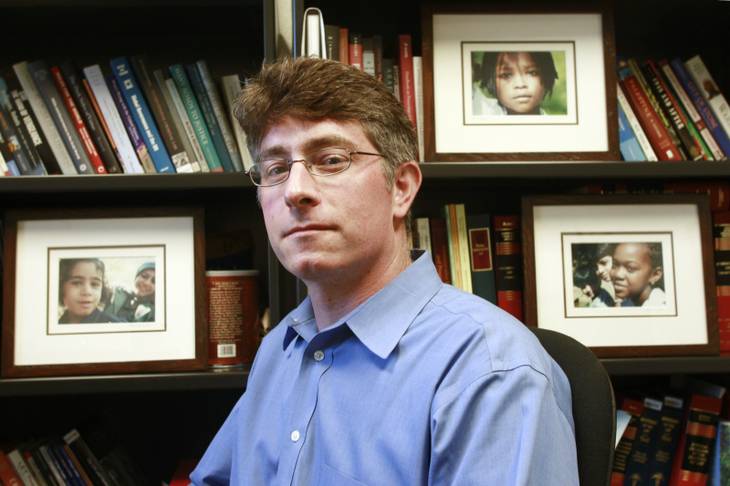If you attend a bikini contest at a Strip resort, the event’s written rules and judging criteria are probably the last things on your mind.
But if you are the contest organizer, they should be a top-of-mind concern, especially if you ask Kate Lowenhar-Fisher and Andy Moore.
With businesses and nonprofit organizations having access to so much technology, creating promotions to draw attention can seem so easy. But these entities can get tripped up legally when creating a promotion. And you not realize your great contest or sweepstakes idea is really an illegal gambling event in the making.
“As gaming lawyers, we’re uniquely positioned to tell them how to do it right and avoid conducting gambling,” Lowenhar-Fisher said.
Nevada has more than 7,000 lawyers with 70 core practice areas and 260 secondary practice areas, according to the American Bar Association and law and government information site hg.org.
In Las Vegas, where lawyers advertise on billboards and scream their pitches on television, the public is likely aware of personal-injury, criminal and corporate litigators. But attorneys such as Lowenhar-Fisher and Moore are among the many others with niche specializations.
The pair understand the legal distinctions between playing and gambling. For an activity to be considered gambling, there must be three elements: chance, consideration (an amount wagered or a fee) and a prize. Eliminate chance and you have a contest, where a prize is awarded based on skill. (Yes, looking good in a bikini can be considered a skill.) Remove consideration, and you have a sweepstakes.
“No purchase necessary” is a sweepstakes phrase that raises red flags for Lowenhar-Fisher. Promoters sometimes push boundaries with what they ask of participants.
“You have to ask yourself if any other types of activities might rise to the level of consideration. For example, supplying lots of personal information, visiting a place of business a number of times, filling out complicated surveys. You have to make sure they’re not crossing the line,” she said.
Entertaining cases
When Teller, of the Penn & Teller comedy/magic team, found a Dutch magician performing his “Shadow” illusion and offering viewers secret tips in exchange for cash, he reached out to Mark Tratos, founding shareholder of Greenberg Traurig’s Las Vegas office. With Tratos’ help, Teller sued and won. The infringement easily was proven, and Teller was protected under pantomime copyright.
Tratos regularly works with high-profile, successful clients, but for each of those, he sees 10 trying to break into the entertainment business. Tratos teaches clients about the realities of taking an idea and turning it into a business.
“It’s the inspiration/perspiration conundrum,” he said. “A lot of people will have good ideas and an interesting concept. … Yet they’re unwilling or incapable of doing the hard work to bring the idea into a viable or protectable state.”
Private eye
Joice Bass practiced privacy before it was cool.
Most of her work helps businesses concerned about privacy breaches. But the partner at Lewis Roca Rothgerber LLP also is venturing into the world of unmanned aerial vehicles, or drones.
She has consulted for the military and aviation companies and has her eye on the evolving industry, which eventually could be worth billions and employ thousands.
“Privacy laws and drones are going to collide,” she said. “Nobody is looking forward to that, but it’s inevitable.”
Bass isn’t quick to call herself a drone lawyer. More specific federal UAV laws still need to be established, she said. But she also admits that privacy law today is its own legal animal.
“As a global society, with technology, we’re so connected,” she said. “You have to be cognizant of privacy or data security laws here and in other countries. Back when I started, there were privacy laws but really no such thing as privacy lawyers or practitioners.”
High stakes
Jeffrey Rugg and Tammy Peterson are commercial litigators at Brownstein Hyatt Farber and Schreck. Both also have expertise in “bet-the-company” litigation, lawsuits in which a company or group’s survival depends on the outcome of a single case.
An example: over the past few years, investors sued homeowners associations, questioning the HOA’s practice of collecting past-due assessments. If an HOA were to lose such a case and its ability to collect dues fees, its ability to operate could be threatened.
In some bet-the-company situations, creative solutions can surface. In 2004, for example, college basketball’s NIT (National Invitation Tournament) brought an antitrust suit against the NCAA, contending monopolistic tactics. The NIT had lost prominence due to the growing popularity of the NCAA Tournament. The NCAA ended up buying the NIT, ending the dispute.
“There may not always be a legal solution. There may be some other way to resolve it,” Rugg said.
Refugees, immigrants
When Michael Kagan finished law school, he followed love to the Middle East. His then-girlfriend, now wife, was a Middle East correspondent and Kagan was looking for ways to apply his legal skills.
So, the first 10 years of his career involved setting up legal aid programs for refugees in Cairo, Beirut and Tel Aviv. Refugees applied for political asylum to the United Nations in an unstructured process.
Before he arrived in Cairo, as many as 80 percent of Sudanese refugees were rejected. After Kagan established his program, that number dropped in half. He said refugees had a hard time communicating their stories in a compelling way that could lead to asylum being granted.
“The idea that a lawyer was involved in this process was almost unheard of,” Kagan said. “In many ways, I was practicing law where law had never been practiced before.”
Now, the UNLV law professor applies those experiences to the university’s Immigration Clinic, a student-run site that offers legal aid for immigrants in Nevada.
“The clinic works like a teaching hospital,” he said. “Although it’s not a large number of cases, you can experiment with new ways to deliver aid with complex cases, and that can be a catalyst for change.”
DNA, innocence
Cynthia Alexander, a partner at Snell & Wilmer, is a business litigator. But she also is chairwoman of the Rocky Mountain Innocence Center, a multistate nonprofit that works to correct and prevent the conviction of innocent people.
Between 3 and 6 percent of the 20,000 prisoners in the Nevada State Prison System are estimated to be wrongfully convicted, Alexander said.
The RMIC team is made up largely of students from UNLV’s William S. Boyd School of Law, who can spend up to two years researching a case. When enough evidence is found to consider a DNA petition, civil attorneys offer pro-bono services.
Five cases currently are being researched. Two have been filed in the past year and two more are pending.
Alexander said DNA science isn’t as clear-cut as TV shows would have us believe. Often, when dealing with evidence that’s decades old and poorly stored, there can be inconclusive judgments that stall cases. But that hasn’t deterred her.
“It’s work that is so fundamentally important to our justice system,” she said.

